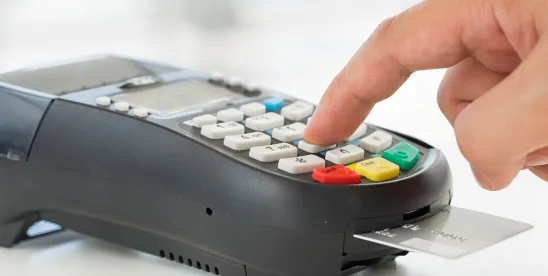Illinois has become the first state to enact restrictions on credit and debit card interchange fees – commonly known as swipe fees – linked to taxes and gratuities. The Interchange Fee Prohibition Act (the “Act”), embedded as Section 150-10 of the state’s latest revenue bill, signed on June 7 by Governor J.B. Pritzker, aims to accommodate retailers who have long contested the fairness of these fees. The Act forbids card issuers, payment card networks, acquirer banks and payment processors from charging retailers for swipe fees on gratuities and “any use and occupation tax or excise tax” imposed by the State or a local government. The Act will become effective in July 2025.
Although merchants have long advocated for this change, banking and payment industry representatives argue that it imposes an undue hardship by forcing them to process certain components of transactions without compensation. They caution that this could lead to significant operational disruptions and technical overhauls, with potential costs that might outweigh the savings for retailers, especially smaller businesses. Industry players further warned that the unique stance Illinois has taken could isolate the state within the national payments system, affecting not just local but also foreign transactions due to compatibility issues with global payment protocols, none of which adhere to the novel method of fee division.
The Act provides that violators will be subject to a $1,000 civil penalty per electronic payment transaction. The transgressor must also refund the merchant the interchange fee calculated on the tax or gratuity amount, relative to the payment transaction. The Act also restricts the use of transactional data. It provides that if the card issuer, payment processor or acquirer bank uses the transactional data for a purpose other than “to facilitate or process the electronic transaction” or “as required by law,” then such conduct constitutes a violation of the Illinois Consumer Fraud and Deceptive Business Practices Act.
Putting It Into Practice: As Illinois becomes the first state to enact such a law, it remains to be seen whether other states will follow. It also remains to be seen whether certain trade groups will sue to block the Act from becoming effective. If the law goes into effect as planned in July 2025, one thing that is clear is that this new forced separation of taxes and gratuities from the “core” of the transaction will create a new paradigm not only for card issuers and payment processors, but also for merchants in how they report transactions.




 />i
/>i

